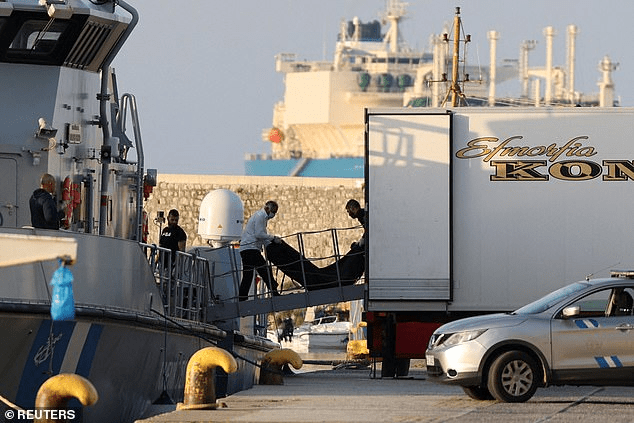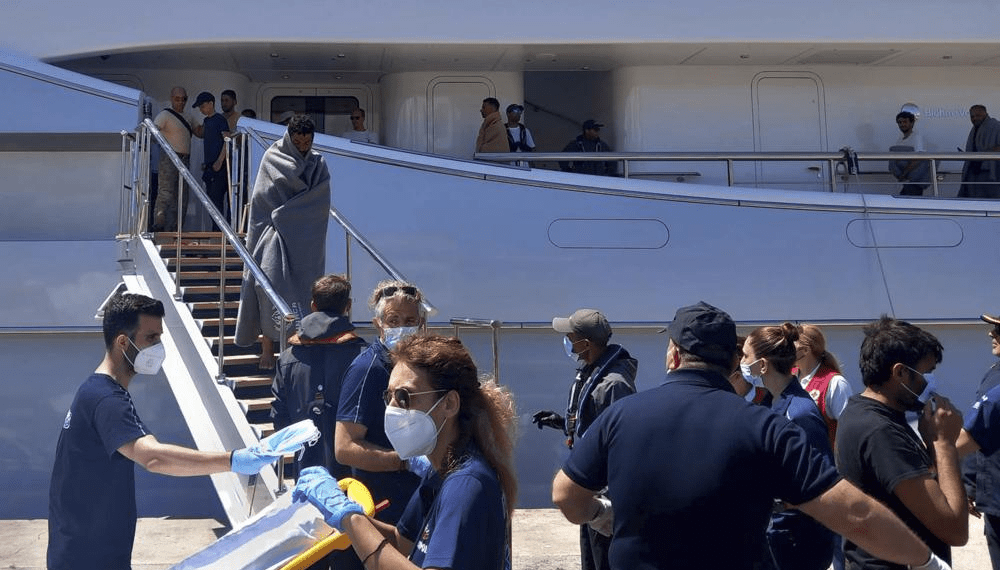A major hunt for possible survivors of a sea disaster in southern Greece continued on Thursday, June 15, 2023, as rescue workers transferred the bodies of dead migrants to refrigerated trucks. Hundreds of people are still feared missing.
At least 79 bodies have been recovered after a fishing boat crammed with migrants seeking to make it from Libya to Italy capsized and sank on Wednesday, June 14, 2023, in deep waters off the Greek coast.

104 passengers, including Egyptians, Syrians, Pakistanis, Afghans and Palestinians, mostly men and including eight minors were saved by rescuers. However, authorities fear that hundreds of others may have been trapped below deck. If confirmed, that would make the catastrophe one of the worst ever in the central Mediterranean’s history.
Twenty-nine of the survivors in southern Greece remain hospitalized, mostly with symptoms of hypothermia, while eight have been questioned by coast guard investigators. Government officials disclosed that the survivors would be moved to a migrant shelter near Athens later on Thursday or Friday, June 16, 2023.

According to health officials, the bodies of the dead migrants were moved to a morgue outside Athens, where DNA samples and facial photographs will be taken to start the identification process. The embassies of the countries involved will assist.
Political campaigning for the June 25 general election has been suspended as Greece declared three days of mourning. An investigation into the circumstances of the deaths was mandated by a prosecutor at the Supreme Court.
The head of the European Commission, Ursula von der Leyen, expressed her deep sadness over the tragedy and vowed to improve coordination between her organization and neighboring nations in an effort to further combat migrant traffickers.
Human rights organizations contend, however, that the crackdown forces refugees and migrants to travel farther and riskier routes in order to reach safe countries.
Chances Of Finding More Survivors Minimal

The search operation south of Greece’s Peloponnese region failed to locate any more bodies or survivors overnight or early Thursday.
“The chances of finding (more survivors) are minimal,” retired Greek coast guard admiral, Nikos Spanos told state-run media.
“We have seen old fishing boats like this before from Libya: They are about 30 meters (100 feet) long and can carry 600-700 people when crammed full. But they are not at all seaworthy. To put it simply, they are floating coffins.”
Nikos Spanos
Coast guard experts believe that the boat may have sunk after running out of fuel or suffering engine trouble, with movement of passengers inside the vessel causing it to tilt and ultimately capsize.
An aerial photograph of the vessel before it sank released by Greek authorities showed people crammed on the deck. Most were not wearing life jackets.

The exact number of people on the boat has become the subject of speculation, with some officials claiming that it carried as many as 600 people.
Gianluca Rocco, Head of the Greek section of International Organisation for Migration (IOM), the U.N. migration agency, opined, “We are witnessing one of the biggest tragedies in the Mediterranean, and the numbers announced by the authorities are devastating.”
The IOM has recorded more than 21,000 deaths and disappearances in the central Mediterranean since 2014.





















